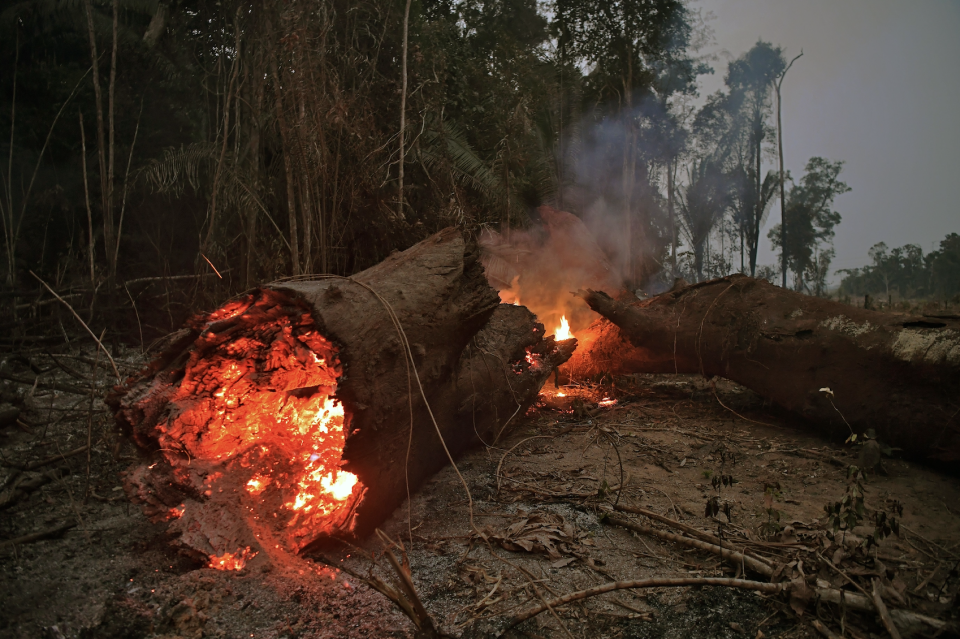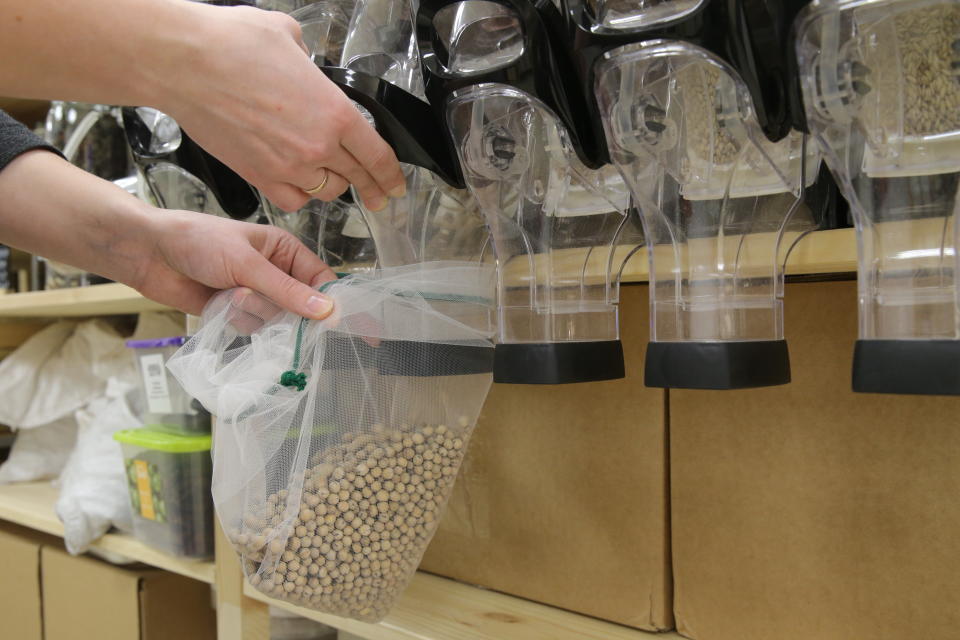The Amazon rainforest is burning — here's how you can help save it

An unprecedented number of fires are ravaging the Amazon rainforest over the last few weeks, most of which were lit by local farmers to clear areas for cattle.
Brazil’s National Institute for Space Research (INPE) reported that the nation has experienced more than 75,000 fires so far in 2019, with more than half of those raging in Brazil’s Amazon region.
Experts warn that the massive fires have the ability to severely inhibit the planet’s overall health given that the Amazon spans eight countries — or about 40% of South America — and produces more than 20% of the planet’s oxygen.
And people are increasingly asking what can be done about it.
“This is a red alert and we should use this time to educate the world on such an important cause,” Adriane Muelbert, a Brazilian-born ecologist with UK’s University of Birmingham who’s studied how Amazon deforestation plays a role in climate change for the last seven years, told Yahoo Finance.

‘The Amazon is a very important place’
Muelbert added that the Amazon “is a very important place for the planet and it’s one of our most valuable weapons to fight climate change at the moment.” Deforestation has contributed to a 17% decline in the rainforest’s total area over the last 50 years, according to World Wildlife Fund.
The full extent of the damage caused by these fires cannot be calculated until after the fires are extinguished. And Muelbert noted that this is only the beginning of fire season and the situation has the potential to get much worse.
“This is not a dry year and in dry years we expect fires, but rainfall has been above average this year” Muelbert said, noting that she considers the fires an environmental anomaly.
In São Paulo, more than 1,000 miles away from the infernos, people are sharing dramatic images of thick smoke clouds and black rainwater linked to the fires.
🌎Just a little alert to the world: the sky randomly turned dark today in São Paulo, and meteorologists believe it’s smoke from the fires burning *thousands* of kilometers away, in Rondônia or Paraguay. Imagine how much has to be burning to create that much smoke(!). SOS🌎 pic.twitter.com/P1DrCzQO6x
— Shannon Sims (@shannongsims) August 20, 2019
How normal folks can help
Calls to action from celebrities like Madonna and Leonardo DiCaprio have gained coverage, but people outside of Brazil might feel confused on how to start.
Kathryn Kellogg, a zero-waste activist, told Yahoo Finance that any “step in the right direction is still a step in the right direction.” She asserted that it’s neither time-consuming nor expensive to adopt a lifestyle that’s centered around “saving and using what you have instead of constantly buying new.”
Here are some tips for anyone who wants to help shake dependency on materials sourced from the Amazon and leave behind a smaller footprint.
Reduce the amount of paper you use
Cut your dependence on trees and go paperless or try to use recycled paper.
Make use of online and automated bill pay, elect to receive e-statements instead of paper and put a stop to junk mail with the aid of DMAchoice, a non-profit dedicated to ending unwanted direct mail.
Curb your meat consumption
Muelbert noted that meat eaters should make informed decisions about where their meat is sourced. Cattle ranching is responsible for 80% of the ongoing deforestation and contributes to the crisis in the Amazon rainforest. Trees are cut and the land is converted into cattle ranches that supply the world’s mounting demand for beef. Eating less meat is one way to not contribute to the deforestation horrors.

Reusable straws
A staggering 500 million single-use plastic straws are used every day in the U.S., and the non-compostable ingredients wind up in oceans and landfills. Buying a Koffie Straw, made from 100 percent silicone rather than metal replicates, is the type of move that would move away from adding to the straw problem.
Reusable water bottles
Humans buy 1 million plastic bottles every minute and the use is expected to balloon to 1.2 million plastic bottles per minute in the next three years. By cutting out the single-use plastic from your beverage drinking repertoire, you can play your small part.
Donate
If it’s within your capacity to donate financially, here are some worthwhile non-profits that will use your contribution to protect and preserve the planet’s rainforests.

Carry a reusable shopping bag
Forgo the plastic bag and use a reusable bag made from recycled materials and pre-consumer waste. Kellogg suggests buying a foldable bag and attaching it to a key ring so it will always be with you.
Buy secondhand furniture
The illegal logging industry is a $100 billion global enterprise that razes trees for timber that gets manufactured into commonly used household items like wooden tables, chairs, shelves, bed frames, and picture frames.
Buying secondhand won’t add to this industry.
Reduce waste in your community
If you’re feeling motivated to share your eco-friendly tips with others, Kellogg offers a plethora of options. “Host a free talk at the local library, call the local newspaper and ask about a column or an article on zero waste living, show a documentary at a community space, grab a table at the local farmers market to educate others, host a clean-up, get involved with your local government, go to city hall meetings, talk to local businesses about implementing a straw on request only policy, get local coffee shops to incentivize bringing your own cup.”
Stephanie is a writer for Yahoo Finance. Follow her on Twitter @SJAsymkos.
Read the latest financial and business news from Yahoo Finance
Follow Yahoo Finance on Twitter, Facebook, Instagram, Flipboard, SmartNews, LinkedIn, YouTube, and reddit.

 money
money 
